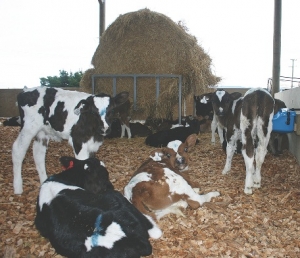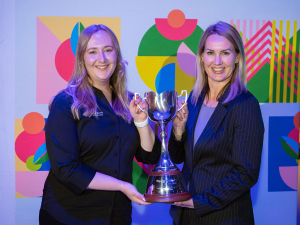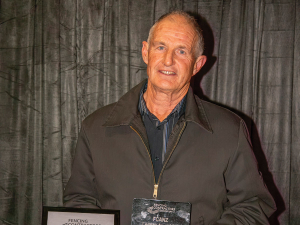Typical 2-4% of calves are lost on dairy farms each year for a variety of reasons and the gene explains a few of those.
While the calves are viable when born, generally they are not reared as replacements owing to their diminutive size. Where they have been, two-year-olds have been as small as yearlings.
LIC would not put a figure on how much smaller the calves are compared to a normal calf other than to say the difference is “significant.”
Acting chief executive David Hemara says the gene’s discovery is important as it means a problem that has existed on farms for decades can start to be managed out of the national herd.
LIC estimates 10-15% of Holstein Friesians carry the Small Calf Syndrome (SCS) gene, with about half that frequency in crossbreds.
If those carriers are mated with a bull that is also a carrier, there’s a one in four chance the calf will be born with the syndrome – ie homozygous for the recessive gene.
LIC says the resulting incidence of the syndrome has been assessed to be around one to two affected calves in the average 400 cow New Zealand herd per year.
Hemara says LIC’s large genetics database and ongoing research programme enabled the Cooperative to go back 30 years screening the DNA of its bulls, and beyond that through pedigree records.
“That research suggests the genetic variation existed in the early 1960s and possibly before then. We can’t be sure of when or where it started.”
CRV Ambreed chief executive, Angus Haslett, says the discovery is important for all New Zealand breeding companies and farmers.
“Over the years a number of genetic variations have been discovered and managed out of the industry and this will be no different. CRV Ambreed will work with LIC to manage this genetic variation so its impact is minimised on New Zealand farms in the future.”
Hemara says SCS is just the latest in a range of genetic variations which have been discovered, and largely eliminated, over the years.
“Diseases like CVM and BLAD used to be present in New Zealand herds but their incidence has been reduced thanks to their discovery and managed removal from the national herd.”
LIC says it will make the screening test available to all genetics companies with the expectation that they will test their AI sires and publish the results, as it is already doing (see panel).
LIC estimates that, over 30 years, around 350 of its bulls have carried SCS. It says it will not necessarily be removing carriers from its bull teams but all bulls are being screened and any carriers will be clearly identified on DataMate so users can minimise the chances of the mating a carrier bull with a carrier cow.

















